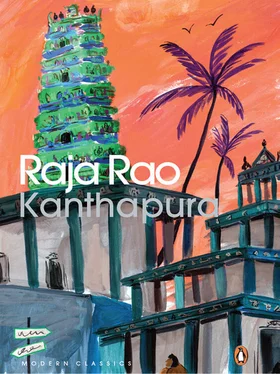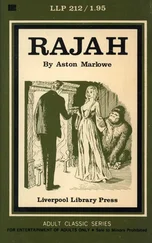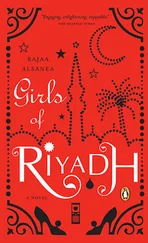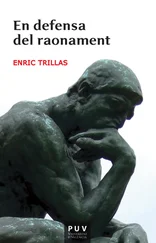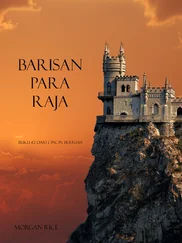Raja Rao - Kanthapura
Здесь есть возможность читать онлайн «Raja Rao - Kanthapura» весь текст электронной книги совершенно бесплатно (целиком полную версию без сокращений). В некоторых случаях можно слушать аудио, скачать через торрент в формате fb2 и присутствует краткое содержание. Год выпуска: 2014, Издательство: Penguin, Жанр: Классическая проза, на английском языке. Описание произведения, (предисловие) а так же отзывы посетителей доступны на портале библиотеки ЛибКат.
- Название:Kanthapura
- Автор:
- Издательство:Penguin
- Жанр:
- Год:2014
- ISBN:нет данных
- Рейтинг книги:3 / 5. Голосов: 1
-
Избранное:Добавить в избранное
- Отзывы:
-
Ваша оценка:
- 60
- 1
- 2
- 3
- 4
- 5
Kanthapura: краткое содержание, описание и аннотация
Предлагаем к чтению аннотацию, описание, краткое содержание или предисловие (зависит от того, что написал сам автор книги «Kanthapura»). Если вы не нашли необходимую информацию о книге — напишите в комментариях, мы постараемся отыскать её.
Kanthapura — читать онлайн бесплатно полную книгу (весь текст) целиком
Ниже представлен текст книги, разбитый по страницам. Система сохранения места последней прочитанной страницы, позволяет с удобством читать онлайн бесплатно книгу «Kanthapura», без необходимости каждый раз заново искать на чём Вы остановились. Поставьте закладку, и сможете в любой момент перейти на страницу, на которой закончили чтение.
Интервал:
Закладка:
But the men were before us and the children huddled between us, and the police surrounded our men and tried to push them back, and suddenly Pariah Rachanna slipped out and ran and we all turned to see where he was going when he jumped across the lantana fence — with one leap he had crossed the ditch and the fence — and he fell and he rose, and as he rushed to climb a toddy tree the police made towards him, but he was already halfway up the tree when the lathis banged against his legs. And the cartmen, who had gathered round us, began to shout, and we cried out, ‘Vandè Mataram!’ and somebody began to clap hands and push forward, and we all clapped hands too and began to sing, and the police began to push us this way and that. When Pariah Rachanna was torn down from the toddy tree, our hearts began to beat so fast that we cried out, ‘Hoye-Hoye!’ and we pushed forward with the men. And the police inspector this time shouted out, ‘Attack!’ and they lifted the lathis and bang-bang they brought them down on us, and the lathis caught our hair and rebounded from our backs, and Pariah Ningamma beat her mouth and wailed, ‘Oh, he’s gone, he’s gone, he’s gone,’ and we say to ourselves, ‘Oh, how inauspicious!’ and we shout out, ‘Mataram Vandè!’ with all our breath, and the children are so frightened now that they take it up and shout and shout and shout, and the police break through us and, one here and one there, they catch the children by the hair and by the ear and by the jacket, and the mothers sob behind them and the cartmen cry out, ‘Shame, shame,’ and the lathis still shower down upon us. Then suddenly there is a cry, and we raise our heads and see the red horse of the police inspector charging upon the cartmen, and the cartmen spit and howl and rush for their lives to the mango grove, and there is another cry, and somebody says Pariah Lingayya has jumped over the fence, too, and the police leave us and rush at him and more and more men jump over and they tear down the lantana fence. And the police inspector gallops across the road and brings down Chandrayya and Ramayya with the knob of his cane, and they roll over and fall into the ditch, and we say, ‘Now, Rangamma, we’ll go forward,’ and just then, as though in answer, Moorthy shrieks out across the fence, ‘Mahatma Gandhi ki jai!’ and we see his lips split and four policemen around him, and somehow our eyes turn all to the Kenchamma hill and as we say, ‘goddess, goddess,’ we see the scattered crowd of children rushing here, rushing there, and mothers, aunts, sisters, grandmothers rushing behind them. And Rangamma cries out, ‘Now, sisters, forward!’ and we all cry out, ‘Mahatma Gandhi ki jail Mahatma Gandhi ki jai!’ and we deafen ourselves before the onslaught, and we rush and we crawl, and swaying and bending and crouching and rising, we move on and on, and the lathis rain on us, and the cartmen have come back again and they feel so angry that they, too, cry out, ‘Mahatma Gandhi ki jai!’ and they, too, rush behind us, and we feel a new force in us and we say we shall enter the toddy grove and tear out at least a toddy branch and break at least a toddy pot. And there are shrieks and shouts and cries and sobs, and the more we are beaten the more we get used to it and we say, ‘After all it is not bad — after all it is not so bad,’ and our bangles break and our saris tear and yet we huddle and move on. Then once again Rangamma shouts, ‘Gandhi Mahatma ki jai!’ and we all rush forward and the crowd rushes behind us and the gate creaks and breaks and we all rush towards the trees, one to this and one to that, to saplings and twisted trees and arched trees and anthills crumble beneath our feet, and the leaves tear and crunch, and the lathis break on our backs and hands and heads. And stones are thrown at the tree trunks, and pots break and spatter down, and someone cries out, ‘Mahatma Gandhi ki jai!’ and we rise with it, and we see up there on the top of the toddy tree is someone, and he is cutting down branch after branch of the toddy tree and the men gather them like sanctified flowers and women slip in here and crouch along there, and policeman after policeman tries to climb the tree, and one falls and everybody laughs, and another goes up proudly but he slips down again, and the police inspector says, ‘Moti Khan, you’d better try,’ and as he is trying to go up the other policemen fall on us again, and we rush to this side and that, while somebody pulls down Moti Khan and the man on the top spits down on him, and a wave of laughter whirls up the toddy grove. But we never saw what came of it, for one by one they took us to the road, and there we stood huddled together between policemen, and we said the work of the day is done, and wives searched for their husbands and mothers for their sons, and brother searched for brother and sister-in-law for sister-in-law. And when the calm had flowed back to our hearts, we touched our bones and our knuckles and our joints, feeling the wounds fresh as burns, and when we saw all the people gathered to see us, there was something in us that said, ‘You’ve done something big,’ and we felt as though we had walked the holy fire at the harvest festival, and, policeman on the right and policeman on the left, we marched down to the Santur police outpost.
There they took only Pariah Rachanna and Lingayya and Potter Siddayya, and when we all thought, ‘Now we are free — we can go,’ they drove us into trucks, one truck, two trucks, three trucks, men in one and young women in another and old women in another again, and they took each in a different direction, and when the night fell, they left us on the Beda Ghats and others on the Karwar road and yet others again on the Blue Mountain road, and when we were on the highway we all began to tremble and we said, ‘Oh, we are in the middle of the jungle!’ and our knees shook and our hair stood on end, and the whole forest seemed to rise up a wall of a thousand voices, and the road hissed this way and that, and tongued over a rill, and shot up the mountains to the seven-hooded skies and all the serpent eyes of the sky looked down bright and bitter upon us — and at last it was Rangamma who said, ‘Don’t be afraid, sisters. Tell me, how many are you?’ And we huddled together in the middle of the road and said, ‘We are twenty-two in all,’ and Rangamma said, ‘Form a line,’ and we formed a line, and she said, ‘Now march, singing,’ and we said, ‘Let us sing loud so that the panthers and the porcupines may be frightened away,’ and we sang, ‘Wheresoever we look, you are there, my Lord!’
And we sing it louder and louder and we march fast and fearful, until we are wet with perspiration and we forget the wounds on the thigh or the bruises on the face or the ache in the bones. And at last, when we had gone God knows how long, there on the top of the hill we see the dangling light of a cart, and the dust seems dust and the hand seems a hand and the trees, oh, nothing but trees, and after all we are not afraid, are we? — and the nearer comes the cart the louder we sing, and when it is in front of us Rangamma cries out, ‘From what town, brother?’—’Why, from Rachapura,’ says he, and then he gets down, and the bulls ring their bells and yawn. And Rangamma tells him we are women and Satyagrahis and we are hungry, and he says he had heard about us in Kanthapura and that the police are still there, and Nose-scratching Nanjamma can bear no more and she says, ‘We are hungry, Rangamma — we have not had a meal since morning’; and Rangamma says to the cartman, ‘Perhaps you’ve something to eat?’ and he says, ‘Why, I have copra,’ and Nanjamma says, ‘Anything. Anything,’ and he lets down the yoke and he opens a sack and he gives us copra, one copra each, and Rangamma says, ‘Are there no more carts coming behind you?’ and he says, ‘Yes, there are,’—’And can you not take us to Kanthapura? We shall pay you two rupees a cart,’ and he says, ‘We shall see when the other carts come.’ And we seat ourselves in the middle of the road, and now we can hear the jackals wail and the twitching trill of the jungle insects, and now and again the bulls shake their heads and the clanging of bells goes tearing down the mountain path and trailing up to the sturdy heights, and then the creak of the carts is heard, and cart after cart comes down the hill and the cartmen say, ‘All right, we’ll take you to Kanthapura,’ and we say, ‘How much?’ and they say, ‘Ask the waters of the Himavathy!’ and we say, ‘No, no!’ and one of them says, ‘He, sisters, I’ve been to the city, to the big city, to Bombay, and I have been a weaver there, and I have seen the Red-man and the man that fights the Red-man, the Mahatma, and I say, “If we touch but the dirt of a coin, we’ll be born in a million hells.” What do you say to that, brothers?’ And the cartmen say, ‘As you like, Timmayya,’ but he spits on them and calls them sluts and says, ‘The Mahatma is born once and not twice, and if ye be such hang-lip hagglers, I’ll go up and come down once, twice, thrice, a hundred times, taking these sisters to Kanthapura,’ and they all turn their carts, and they say, ‘You are a funny fellow — but you say there’s a Mahatma, and maybe his ire will be upon us.’ And they say, ‘Hoye-Hoye,’ and we climb into the carts, and hardly in, head against head and arm against arm, we lean over one another, and we doze and doze and snore and snore, and we groan up the hills and we grind down them, and when we have passed over a rattling river bridge, there’s the familiar noise of dogs barking and doors creaking, and people are heard washing their hands after dinner, and Rangamma says, ‘Stop the carts, brother,’ and we wake up and get down, for we are in Santhapura and Rangamma’s cousin Subbayya is landholder there, and he says to the cartmen, ‘You can go now, I’ll take them home,’ and they get a coconut and betel-leaf goodbye.
Читать дальшеИнтервал:
Закладка:
Похожие книги на «Kanthapura»
Представляем Вашему вниманию похожие книги на «Kanthapura» списком для выбора. Мы отобрали схожую по названию и смыслу литературу в надежде предоставить читателям больше вариантов отыскать новые, интересные, ещё непрочитанные произведения.
Обсуждение, отзывы о книге «Kanthapura» и просто собственные мнения читателей. Оставьте ваши комментарии, напишите, что Вы думаете о произведении, его смысле или главных героях. Укажите что конкретно понравилось, а что нет, и почему Вы так считаете.
